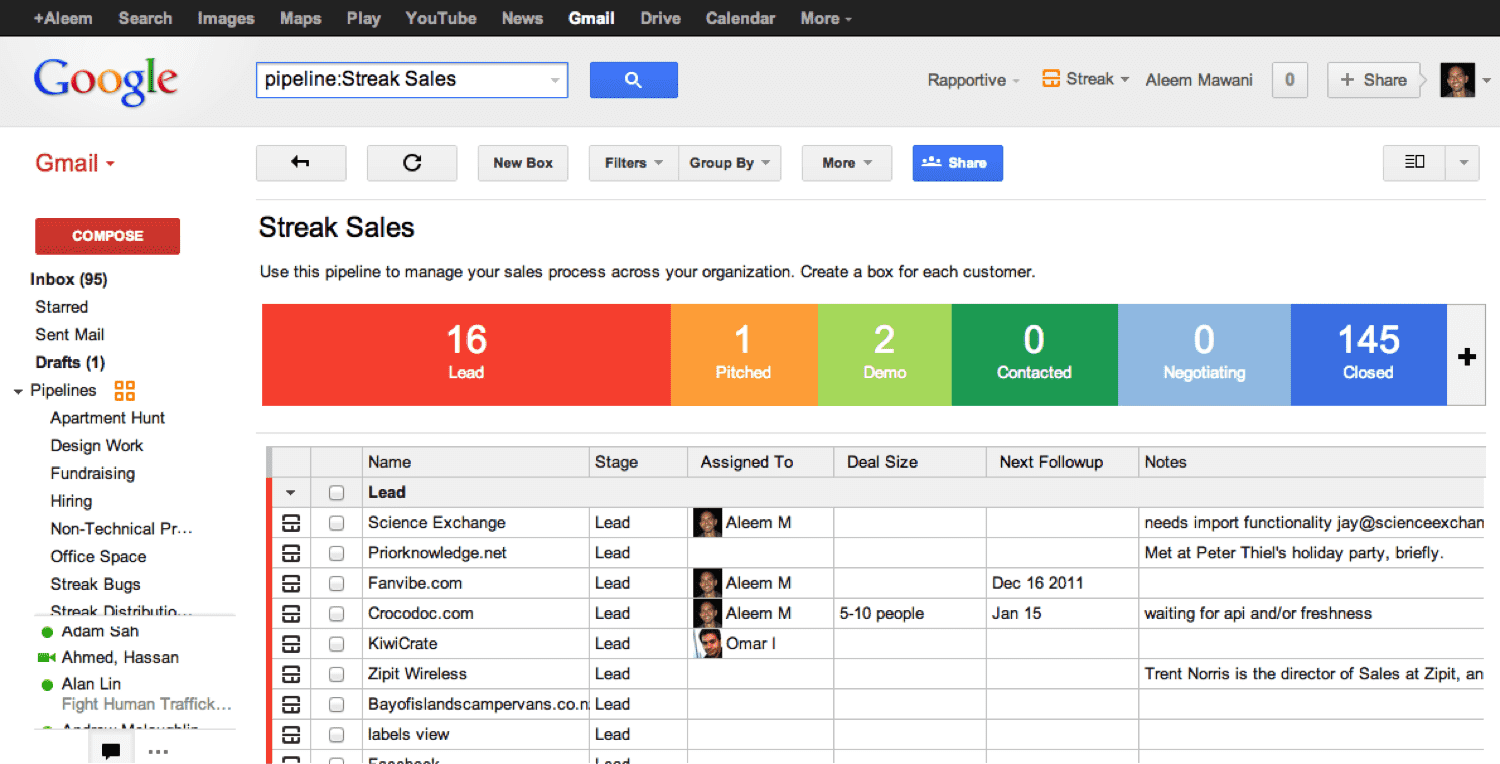- K Create campaigns that suit your company's message
- K Focus on strategy with automations
- K Advertising channels for reaching new audiences
- K Email automation with email workflows
- K Easy to use A/B Split testing
- K 900+ professionally designed templates
- K Drag and drop creator to make scalable workflows
- K 100% responsive landing pages and web forms
- K Over 100 API integrations
- K Create landing pages for Facebook audiences
- K Integration with Zoho CRM
- K Automate email marketing with autoresponders
- K Drag-and-drop editing feature
- K Set a series of emails for contact lists
- K Upload email lists from Excel, Gmail, Outlook
- K Hundreds of professional email templates
- K Track your success in real time
- K Partnered with Bigstock to offer stock photos
- K Automate email campaigns for new users
- K Integrations with Salesforce, Magento, Shopify
- K Award-winning email customer support
- K Integrations with over 150 third-party apps
- K One-on-one training and in-depth onboarding
- K Drag-and-drop sales pipelines

- Create campaigns that suit your company's message
- Focus on strategy with automations

- Email automation with email workflows
- Easy to use A/B Split testing

- Drag and drop creator to make scalable workflows
- 100% responsive landing pages and web forms

- Create landing pages for Facebook audiences
- Integration with Zoho CRM

- Drag-and-drop editing feature
- Set a series of emails for contact lists

- Hundreds of professional email templates
- Track your success in real time

- Automate email campaigns for new users
- Integrations with Salesforce, Magento, Shopify

- Integrations with over 150 third-party apps
- One-on-one training and in-depth onboarding
What is Email Marketing?
Email marketing is the process of building campaigns, segmenting recipients, and configuringautoresponders to send marketing correspondence via email for the purpose of customer engagement. Email marketing has several uses throughout the customer lifecycle, and is no longer restricted to marketing; though its roots lie in advertisement and solicitation of business, modern email marketing software is used for anything from lead generation to cross-selling to surveying customer satisfaction.
Email marketing is a subset of marketing automation, which is one of three areas of focus -- alongside sales automation and helpdesk ticketing -- for Customer Relationship Management (CRM) systems. Therefore, email marketing functionality is included in CRM software; however, smaller, specialized email marketing solutions are also available for businesses with simpler digital marketing needs or that aren’t pursuing an omnichannel customer engagement strategy, a modern goal of CRM software.
Email marketing software is chiefly available as Software-as-a-Service. SaaS email marketing solutions are often priced according to subscription tier and number of contacts. The higher the subscription tier, the more features are available. Certain solutions offer a discount per month if you sign an annual contract. Others permit you to pay only per campaign. Most email marketing software integrates with other popular online business tools for ease of data communication.
Key Benefits & Features of Email Marketing Software:
Email marketing is a staple of digital marketing, which includes everything from search engineoptimization (SEO) to Pay-Per-Click (PPC) advertising to Social Media Marketing (SMM). Email marketing offers the opportunity to directly engage with prospects, leads, and customers to send newsletters, promotions, confirmations, and event reminders. It offers distinct advantages over traditional mail, of course; it’s far cheaper, faster, has wider reach, and email marketing software contains features to track campaign performance to optimize around successful strategies. For businesses looking for an effective and low-cost tool to market their products, promote their brand, or engage with customers, email marketing offers distinct benefits and features.
- Cost-Effective Marketing. An effective email marketing campaign offers both scope and precision; personalized email blasts optimized around subscribers’ preferences can be sent to large segments of an email list for far less cost than traditional channels. Even compared to digital channels, email marketing is more direct, more specific, and more likely to convert on a known email list of known than existing alternatives.
- Multi-Functional Software. Email marketing software began as a way to send mass emails for lead generation and promotional activities. Modern email marketing software allows email campaigns at regularity based on templates optimized for certain purposes -- newsletters to inform or engage, emails to welcome new subscribers, confirm purchases, promote products, celebrate an anniversary, provide product use instructions, and more. Autoresponders allow marketers to build functionality around email or website interactions, thus tailoring engagement closely to the recipient’s actual interests.
- Calculate ROI. Email marketing software enables marketers to accurately track the performance of their marketing assets and campaigns in terms of open rates, clickthrough rates, and conversions, and also track revenue originating from specific sources. This provides marketers a great deal of transparency regarding the performance and efficiency of their email marketing strategies.
- Optimization Tools. Email marketing solutions allow marketers to test marketing assets against each other in a controlled A/B test, or split test. Marketers can compare subject lines for open rates, content quality for clickthrough rates, calls-to-action with conversion rates. Different email templates and assets can be used according to performance with various segments of your subscriber list, enabling marketers to potentially maximize their ROI.
- Leverage Existing Tools. Email marketing software integrates with related business apps, including other marketing automation solutions, CRM software, sales automation software, customer service helpdesks, e-commerce platforms, online accounting software, and others. This means in addition to contributing email marketing data to third-party apps, contact lists can be imported from those resources to create email lists.
- Obtain Customer Insights. Email marketing software provides an opportunity to collect demographic data, content preferences, and preferred engagement on your email list. This information can be made actionable in subsequent email campaigns. It can also be stored in your related business apps, such as your customer service helpdesk for additional customer context or your larger marketing automation or CRM system for external marketing campaigns.
What to Look for in an Email Marketing Solution:
Email marketing software vendors provide solutions that aim to achieve common goals but use different methods. The methods you prefer depend on your use case and marketing team; in general, many of the factors you need to consider when comparing email marketing solutions can be broadly applied to the products at large.- Campaign Building Tools -- Certain email marketing solutions allow marketers to build campaigns through a drag-and-drop interface. End users are able to choose from campaign types, choose list segments, build stages, assign templates, add automations, set up triggers, and so forth.
- Template Design Interface -- Modern email marketing software allows users to design email templates also through a drag-and-drop interface. Marketers can add elements such as the titles, images, images with text, videos, social media links, and so on -- knowledge of HTML is not required.
- Template Library -- Some email marketing vendors offer an extensive library of templates for emails, calls to action, and even landing pages. Marketers can select from a variety of templates optimized for specific purposes, industries, and segments. Templates typically have responsive design so they render correctly on mobile devices.
- Optimization Tools -- Email marketing software allows marketers to split test (also known as A/B test) marketing assets, from entire campaigns to individual elements of a template, to determine which ones perform best for specific segments according to certain metrics. With enough patience and adjustment, marketers can produce campaigns that have been tried and tested for success.
- List Building & Segmentation -- Marketers are able to import existing lists of contacts and email addresses via specific file format (CSV, XLS) or through third-party business apps, such as an e-commerce platform or their CRM. The email marketing solution will be able to create a segment based on specified conditions according to the information available. This enables marketers to target segments with content tailored to their interests.
- Autoresponders -- Autoresponders are an essential part of modern email marketing software. These are what automatically send emails in response to recipient interactions -- website activity, signing up for a newsletter, purchasing a product. Autoresponders can also send emails at intervals or on notable dates, such as birthdays or anniversaries of enrollment. An email marketing campaign with highly-defined autoresponder triggers will be able to target recipient segments not only by their interests but also by their behavior.
- Analytics & Reporting -- Marketers can review the performance of email campaigns and marketing assets, track revenue, and calculate ROI with email marketing analytics. Most products give marketers flexibility in determining which behaviors to track; various metrics can be used to optimized campaign and assets, such as open rates, clickthrough rates, bounce rates, link activity, spam complaints, unsubscribes, and so on.
- File Management -- Modern email marketing solutions provide file storage and management functionality, enabling marketers to store images, videos, gifs, pdfs, and other documents for easy access. End users can create categories and use sorting tools to quickly access uploaded files.
- Integrations -- Email marketing software will integrate into your related business tools, including broader marketing automation software, various CRM systems, e-commerce platforms, billing systems, and often include partner extensions which add specific functionality to your email marketing product. Certain products offer a large library of native integrations, and some offer their developer API, enabling emails triggered by API calls.
- Spam Compliance -- Countries have various legislation by which email marketing campaigns must abide or face penalties. Fortunately, all major email marketing platforms offer built-in compliance. In the U.S., businesses must comply with the CAN-SPAM Act; it’s worthwhile researching legislation pertinent to region of your recipients.
Some Final Thoughts to Email Marketing Shoppers:
Email marketing software provides an opportunity to generate leads, engage prospects, convert newcustomers, and build repeat business. It also offers a precise approach to measuring ROI and tracking revenue generated by email marketing campaigns. There isn’t a standard system between product vendors when it comes to pricing -- most offer subscription tiers with escalating levels of functionality, and some offer scaled pricing according to your number of contacts. (Some offer both.) Certain vendors offer discounts if you sign an annual contract or represent a non-profit. Depending on the frequency and focus of your email marketing efforts, you may prefer a solution that charges you per campaign.
It’s always advisable to try before you buy. Certain solutions offer free versions, others offer free trials. Explore user reviews, particularly those from marketers with a similar use case, before making your decision.



